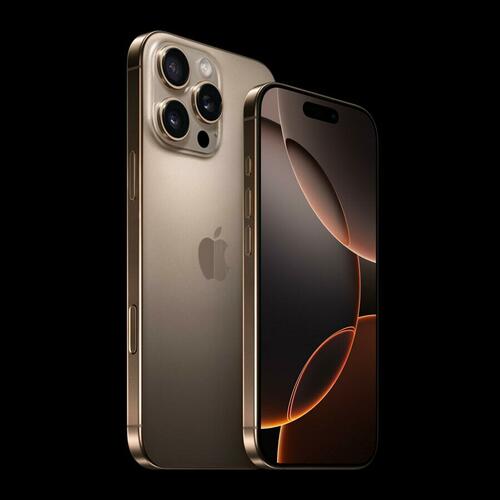Apple’s iPhone 16 Sales Falling Short Of Expectations; DigiTimes Says
Apple’s iPhone 16 launch has been mixed so far. On the one hand, Wedbush Securities’ Daniel Ives recently told clients this is the “beginning of an AI-driven iPhone supercycle,” but numerous reports indicate otherwise.
The latest report comes from the supply chain news website DIGITIMES Asia, which cites industry insiders who spoke with the South Korean media website DealSite about the initial sales of the iPhone 16 had fallen short of expectations.
Here’s more from DIGITIMES Asia:
Apple’s iPhone 16 has seen lower-than-expected initial sales, deepening concerns for South Korean display manufacturers. According to recent reports from South Korean media, LG Display (LGD) is facing particularly severe challenges.
Citing industry sources, South Korean media DealSite reported that the iPhone 16 series’ initial sales performance has fallen short of expectations, which is expected to impact South Korean OLED panel suppliers’ performance in the second half of 2024.
The iPhone 16 debuted on September 20, in key markets such as South Korea, the US, and China. Although South Korea’s three major telecom providers saw their pre-order stock sell out, a closer look revealed that demand for the iPhone 16 differs significantly from the iPhone 15.
And this.
South Korean media analysis suggests that while the initial supply of iPhone 16 sold out in South Korea, this was due to a lower supply in 2024 compared to 2023, leading to inventory shortages. This is seen as a temporary phenomenon, with similar situations reported in the US and China. Industry sources indicate that global pre-orders for the iPhone 16 have dropped by approximately 13% compared to the iPhone 15.
Separately, a South China Morning Post report last week showed that Chinese online retailers offered discounts for the new iPhone because of dismal demand. The discounts in China came a few days after TF International Securities analyst Kuo Ming-chi’s US pre-order analysis found less demand for the more expensive iPhone 16s compared to base models.
Meanwhile, Wedbush’s Ives told clients about “an AI-driven iPhone supercycle that should enable Apple to break its historical mark for iPhone units in a year and translate into a $4 trillion market cap for Cupertino in 2025.”
The big question is whether consumers are willing to fork over the equivalent of a monthly car payment just to get the new iPhone with Apple Intelligence.
Tyler Durden
Thu, 09/26/2024 – 11:55

